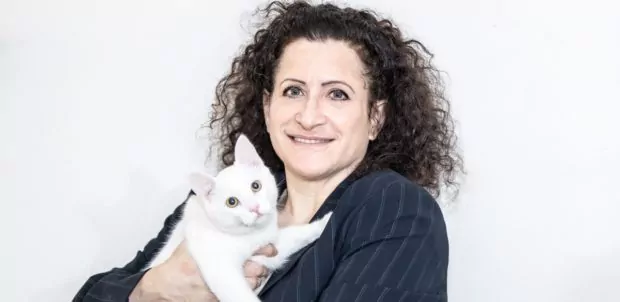In 1999, the Financial Samurai graduated William & Mary with an economics degree. He took his first job at Goldman Sachs as an analyst in New York City.
Rent in the city bordered on insane. Many of his colleagues rented a one-bedroom apartment for $1,800+ a month or had their parents buy them their own place. The Samurai chose a different path.
“To cut costs and reduce commute time, I decided to share a studio at 45 Wall Street with a buddy of mine from high school,” he says. “The place was an eight-minute walk to work. We paid $800 each for the luxury of passing out each night after a 14-hour work day.”
The Financial Samurai decided right away that saving money was essential. “I saved between 50 percent to 80 percent of my after-tax, after maxing out my 401k, income every year. I always had the philosophy of saving 100 percent of each bonus, and then saving at least one bi-weekly paycheck.”
He remembers some rough times during his stint in New York. “Walking to work in the dark and walking back home in the dark was depressing but I had to save aggressively in order to one day be free!”
He received a raise the following year and rented a studio apartment with another friend. He slept in the living room and his buddy stayed in a windowless room for $900 apiece. He prided himself on paying just 19.6 percent of his salary in rent.
In 2001, the Financial Samurai moved to San Francisco — where the rent was cheaper than New York. “I decided to rent a room in a two-bedroom, one-bathroom apartment at the edge of Chinatown for $900 a month.”
He admits it was a dump. It also didn’t last long. Unfortunately, his roommate had an unusual habit — he randomly screamed his lungs out during the night. He moved out, but continued living in reasonably priced rentals. He says: “From ages 18–34, living like a pauper is great for financial independence seekers!”
The meltdown
As the years progressed, the Financial Samurai improved his living quarters and he also earned his MBA from UC Berkeley’s Haas School of Business in 2006. A few years later in 2009, he started the Financial Samurai — because of a crisis.
He remembers, “Things were going well until the 2008 financial crisis hit, wiping away 35 percent of my net worth in just 12 months.” Luckily, his saving and spending philosophies, and his other investments, helped him survive the financial meltdown. I asked him if he could explain his philosophies…
“From a savings perspective, my philosophy is: If the amount of money you’re saving each month doesn’t hurt, you’re not saving enough,” says the Samurai. “From a spending perspective: Spend money on things that enrich your life and your net worth. But never go into revolving credit card debt.”
By the time he left corporate America and began living free from the corporate world in 2012, the Financial Samurai was generating about $80,000 in passive income. He worked and saved his tail off for many years and believes a certain mindset helped him succeed:
“I strongly believe people need to have the ‘abundance money’ mindset. There is an endless amount of money out there for the taking. Tell yourself, ‘Why not me too?’”
Sounds like solid advice. And the Financial Samurai also passed on a few more tips:
- You should pay down debt and invest concurrently. Follow the FS-DAIR method to logically do both to maximize your net worth over time.
- Track your net worth religiously. You can’t optimize your money if you don’t know where your money is going.
- Before buying anything, ask whether the purchase improves the quality of your life AND your net worth. If it doesn’t, then pass, or at least sit on it for 30 days.
I’ll end with another quote from the Financial Samurai regarding life and money: “Any time you can combine generating real value with having fun, you’ve hit a grand slam.”








